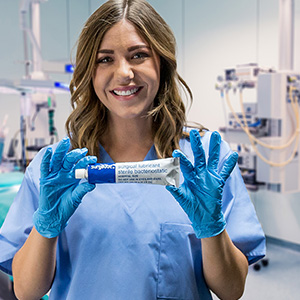What Lubricants Do to Your Medical Instruments
The use of medical lubricants when providing invasive patient care is for more than patient comfort. While patient comfort is a great benefit of surgical lubricants, the main purpose is to prevent friction that can cause tissue damage. Not only can tissue damage be uncomfortable, but this unnecessary trauma can also create sores, inflammation, and open areas that make the patient vulnerable to bleeds and infection. Many oil-based lubricants offer higher viscosity rates but can severely compromise the integrity of medical instruments, especially those that are silicone or rubber or have any sort of coating.
Medical instruments that require lubrication include feeding tubes, endotracheal tubes, Foley catheters, guide wires, and speculums. While speculums may be metal, many of these devices are made of plastic, silicone, or rubber. When the integrity of these medical devices is compromised, it can cause a variety of issues ranging in severity from minimal, where they are rendered ineffective due to leaks, to severe, where the device’s material is introduced into the patient. Here are some effects that lubricants can have on medical devices.

Decrease friction.
As we have already discussed, friction between the medical device and patient tissue can cause numerous unpleasant problems. When a medical device is inserted into an orifice, whether mucous is present or not, the foreign object comes in contact with sensitive tissue that is not meant to be probed. Friction can cause the tissue to be scraped and lead to open areas. For devices that are only used for a short period of time, such as a speculum, this may only cause minor discomfort to the patient. However, when devices such as nasogastric tubes are inserted, tissue irritation can lead to esophageal bleeds which can be dangerous. Any tissue that becomes compromised becomes a vulnerability in the patient’s immune defense system and increases the risk of infection. Not only is friction a patient comfort issue, but also a patient safety issue. Using a quality medical lubricant like Surgilube® decreases friction and increases overall patient comfort.
Decrease wear.

Wear of a medical device refers to a loss of material caused by use or the exposure of the device to corrosive agents. Some agents are corrosive to any material, but some agents are corrosive to specific surfaces due to chemical interactions that do not occur with other materials. For instance, oil-based lubricants can cause latex and silicone products to break down quicker. Wear in the form of asperity, unevenness or roughness of a surface, can increase friction and create areas that are difficult to sterilize. This increases the potential for harm and infection to the patient. Using a water-based lubricant can help decrease the overall wear and breakdown of your medical device.
Water Soluble Lubricant
To help protect patients and medical instruments, it is recommended to use water-soluble medical lubricants instead of oil or silicone-based lubricants. In addition to preventing the wear of medical devices and instruments, Surgilube® Surgical Lubricant offers a superior viscosity that reduces friction. Surgilube is safe for the patient, practitioner, devices, and exam gloves. Surgilube continues to be the most sought-after and renowned surgical lubricant in the medical community. To learn more about our premium products, visit us online today!